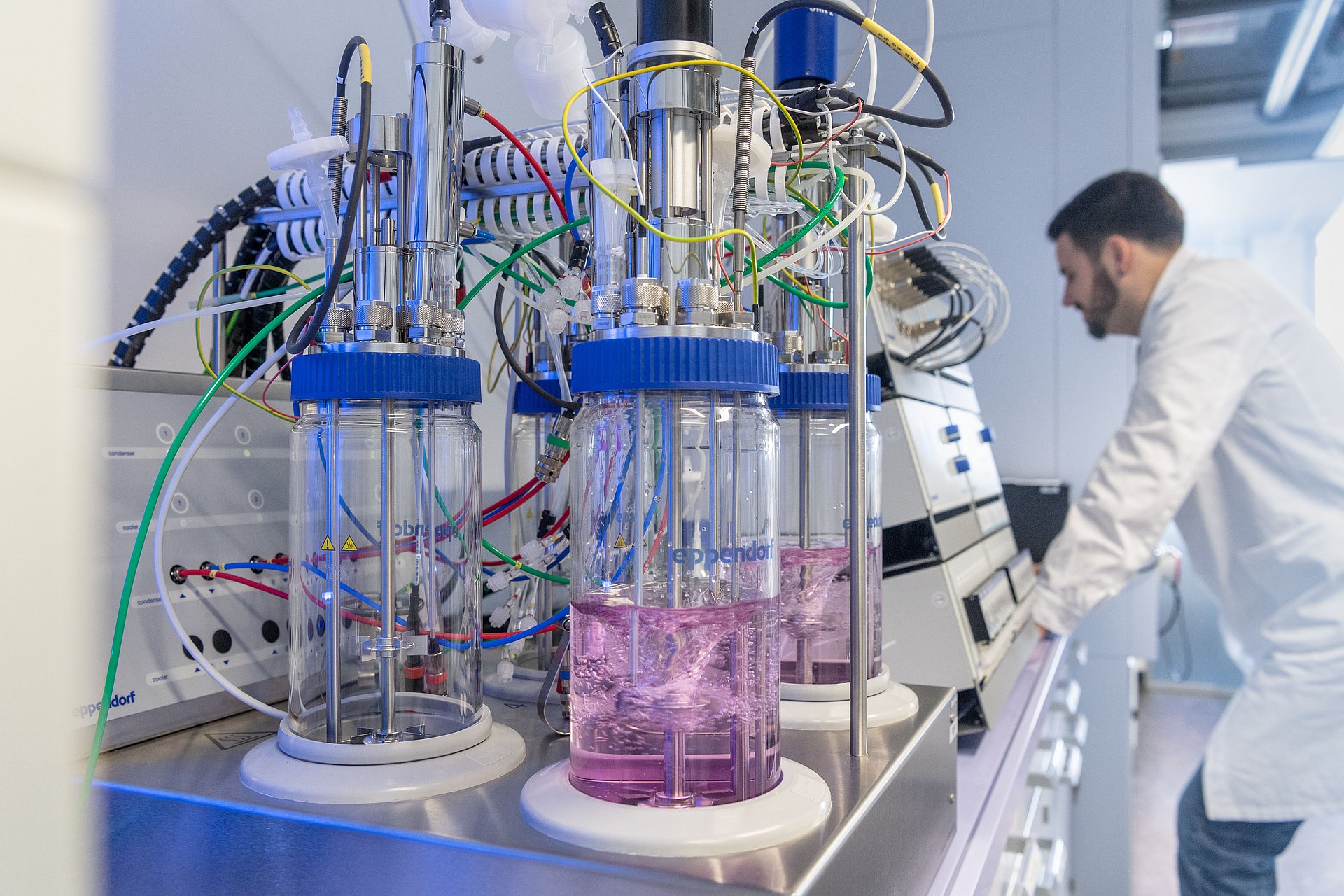
Technical University of Munich (TUM) is working on alternative, climate-neutral fuels for use in transportation. Together with partners from industry and science, six TUM professorships at the TUM Campus Straubing for Biotechnology and Sustainability (TUMCS) have received funding from the German Federal Ministry of Transport and Digital Infrastructure for the Synergy Fuels project. Over a period of four years, the support will total of 13.6 million euros, 5.7 million euros of which are earmarked for TUM.
The transformation of the transportation sector for a sustainable future requires further reductions in CO2 emissions. This also calls for newer, more sustainable fuels. Such fuels can be subdivided into biofuels on the one hand, made from waste and refuse materials, and electricity-based fuels (eFuels) on the other, which are made from carbon dioxide (CO2) and water using renewable electric energy (Power-to-X technology).
The objective of the Synergy Fuels project is to combine the production of biofuels with the production of eFuels and to develop the corresponding integrated refinery concept. This novel material-based and energy-based integration of existing concepts using biogenic waste materials, CO2 and renewable energy is to make the production of sustainable fuels more efficient and thus to drive the future-oriented transformation of the transportation sector.
“There’s no easy answer to sustainability”
TUMCS Rector Prof. Volker Sieber, member of the project as head of the Professorship for Chemistry of Biogenic Resources, explains why synergies among various technologies in the area of sustainable transportation development are decisive: “Varying local circumstances and differing fields of application make it necessary for us to rely on more than one individual technology – there’s no single silver bullet for moving sustainability ahead in the transportation sector. That’s why we’re focusing on the combination of thermochemical, electrochemical and biotechnological processes.”
The Synergy Fuels project focuses particularly on transportation areas in which the reduction of greenhouse gas emissions is difficult to achieve for a number of reasons, for example the difficulty involved in electrifying air transport. The collaboration among the project partners in this field is strongly accelerating technology and innovation transfer, so that project results can be ultimately applied in practice.
“The technological maturity needed for market entry and actual implementation is within the scope of our research and is ensured by the involvement of partners from the industrial sector,” says Jakob Burger, who holds the Professorship for Chemical Process Engineering at the TUM Campus Straubing and is the acting project coordinator.
TUM Campus in Straubing is the strongest project partner
Six professorships at the TUM Campus in Straubing are receiving 5.7 million euros, the largest share of the funding. As a TUM Integrative Research Center, TUMCS covers interdisciplinary research and teaching on the realization of a sustainable resource and energy transformation and is thus ideal for this type of collaborative project. The joint work performed by the project partners is being institutionalized in the founding of a research center for renewable fuels.Further information and links
TUM project participants:
- Prof. Blombach (Microbial Biotechnology)
- Prof. Burger (Chemical Process Engineering)
- Prof. Gaderer (Regenerative Energy Systems)
- Prof. Plumeré (Electrobiotechnology)
- Prof. Sieber (Chemistry of Biogenic Resources)
- Prof. Zavrel (Bioprocess Engineering)
Project partners:
- Fraunhofer Institute for Interfacial Engineering and Biotechnology IGB, Straubing branch
- Fraunhofer UMSICHT, Sulzbach-Rosenberg branch
- Technologie und Förderzentrum
- Clariant Produkte (Deutschland) GmbH
- Martech GmbH
- Volkswagen AG
- German Federal Ministry of Transport and Digital Infrastructure
Source
TUM, press release, 2023-03-24.
Supplier
Bundesministerium für Digitales und Verkehr (BMDV)
Clariant International AG
Fraunhofer-Institut für Grenzflächen- und Bioverfahrenstechnik (IGB)
Fraunhofer-Institut für Umwelt-, Sicherheits- und Energietechnik (UMSICHT)
Martech GmbH
Technische Universität München (TUM)
Technologie- und Förderzentrum, TFZ
Volkswagen AG
Share
Renewable Carbon News – Daily Newsletter
Subscribe to our daily email newsletter – the world's leading newsletter on renewable materials and chemicals










